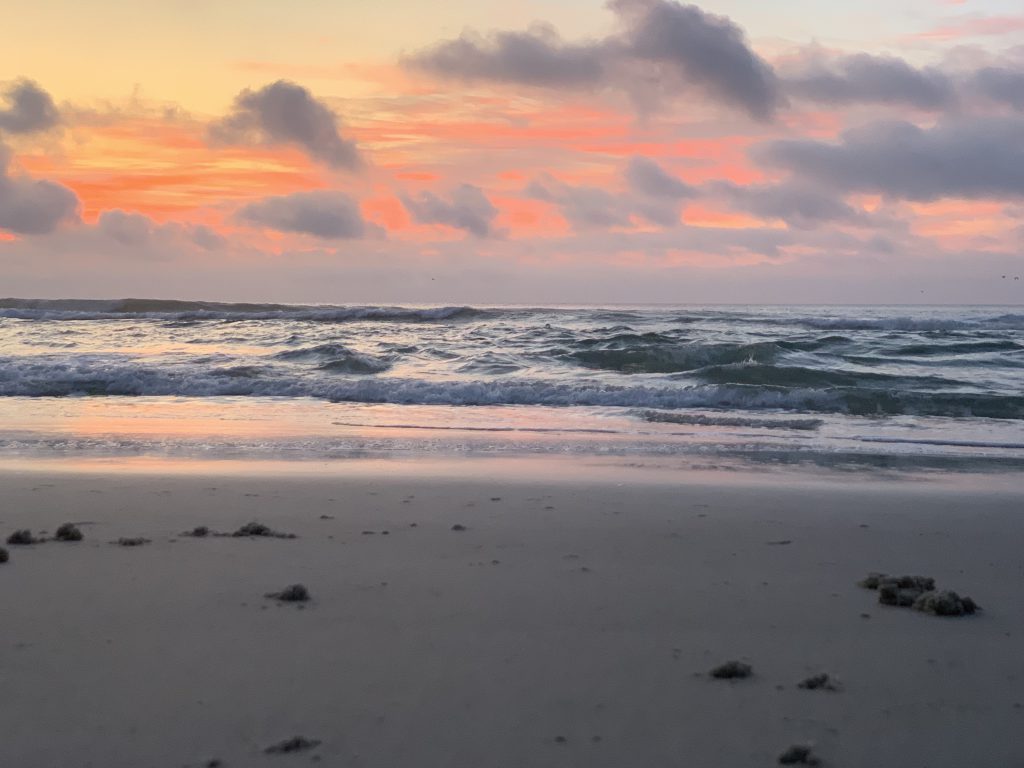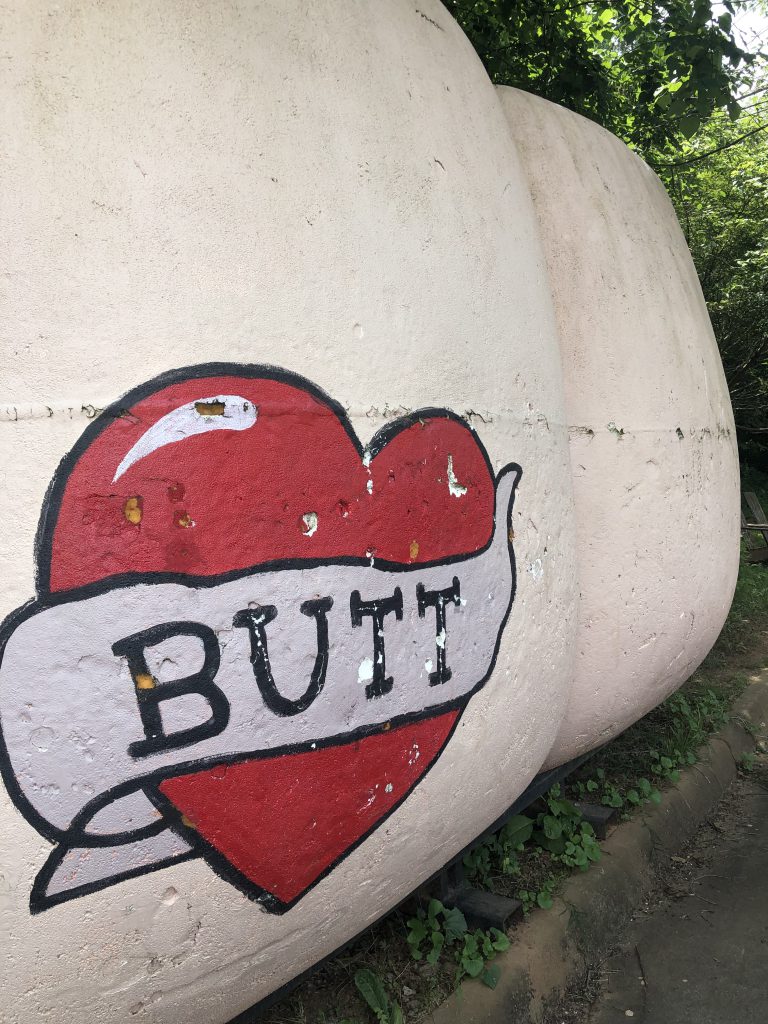Have you ever gotten into an argument with your spouse/friend/family member where you were so consumed with anger and frustration that you just walked away? Maybe you stormed off. Maybe you got in your car (complete with dramatic door slam) and drove away.
Then some time passes. Could be minutes–maybe an hour or two.
Now you see that person again. Still just as angry? I’ll bet not.
This has happened to me countless times. That little break–the small interruption in the environment, it allows a mental reset. I dare say it has improved the situation 100% of the time. My usual mistake is not calling for one of these time-outs when I’m 20 minutes into an emotionally-charged fight about laundry or ways to correctly manage a grocery list.

I took the picture above on a Tuesday morning. Normally at the
I took two days off of work and went solo camping at a Maryland beach. Many people had reactions like “why such a short trip?” and “you’re crazy to camp alone!”
I took the short trip because:
- It fit into my schedule without causing too much pain.
- I’ve discovered that changing my environment is hugely beneficial to my mental health.
Much like breaking out of an “unfinished” argument and letting the time apart restore perspective, a trip out of your normal environment allows an opportunity to really live rather than just existing day-to-day.
This is not really a revelation. Millions of people take vacations every year precisely because the change of locale is exciting, restorative, and engaging. The part that’s an epiphany for me is that we don’t have to wait for a week or more off and a plane ticket and a hotel to experience many of the benefits of a vacation.
Two days at the beach can do it.
A day trip to a new city can do it.
A couple of hours in a new part of your town can do it.
I believe that frequent, manageable, micro-vacations can do it.
Alastair Humphreys has traveled the world on wild adventures, and he noticed that many people to whom he spoke complained that they couldn’t themselves undertake such adventures. They had jobs, families, and responsibilities. These conversations gave him the idea to write a book describing what he called micro-adventures.
Since having the realization this year that short trips can be powerful. I have:
- Driven to cities and towns within 100 miles from my home just to immerse myself in whatever I ran across. No fixed plan–just go.
- Gone to new restaurants and tried many new foods (mostly successful, but sake is kind of gross).
- Learned to play disc golf.
Put a pin on a map and go! You’ll feel better. Roadside America is a fun catalog of oddities and interesting places scattered across the U.S. It’s how I found the Love Butt.

Happy micro-vacationing!



Hey Jerry, I love this post and how you’ve tied both the benefits of stepping away from something like an argument with the bigger benefits from a micro vacation.
The book you refer to sounds great and you have shown us with your examples of how easy it is to put into practice.
It’s funny when my kids were younger we did lots of these – exploring new parts of our world, close enough for a day trip or weekend away but not so much in recent years. Thanks for inspiring me to revisit the idea of a micro vacation. There’s even a hashtag #microvacay that I can use on IG 😁
Hi,
The work is a very good reminder to take care of ourselves. I like the mix of story and practical application . How often do you take micro-vacations? Is your spouse supportive? Thanks!
I don’t think the title of your article matches the content lol. Just kidding, mainly because I had some doubts after reading the article.
I don’t think the title of your article matches the content lol. Just kidding, mainly because I had some doubts after reading the article.
uLGe1UV1reA
RjD0fFfmkXK
I don’t think the title of your article matches the content lol. Just kidding, mainly because I had some doubts after reading the article.
DfRSt8iEsYu
V5wXfxPxcQJ
VQruN6Wya9n
0n4uCRfMTBO
NhbGZMTPb1I
7IaWDHcBLmP
zAUQmUzYX96
dFTNGecH9MT
Mwuh7rwUuiQ
aMKGQD6mD3K
EbccxGkynzW
8P0bSJKrAnd
sSl3wNPmaRF
xEn2REUFMeO
GXKIdhWCQWU
Eh2ms1n1kaE
Q0TSfCiHHAx
qicv8IBkOb8
8Ofh3ogusb3
cPHqgpRF0cI
2XkydZeyyQO
JWjU0tk75LL
lCxwupnAsDZ
GfEa4NC4fdD
N8Z1YFsT8eS
Y4glt5RaXbO
y8N3YGJfk5Y
deogvW2qEPV
ytgvmJPNQie
8t5M1vAqJBW
JHyNngwmHsN
4TTW79gZbyb
3Yz6P8pHmyl
PbSKRrKOr0g